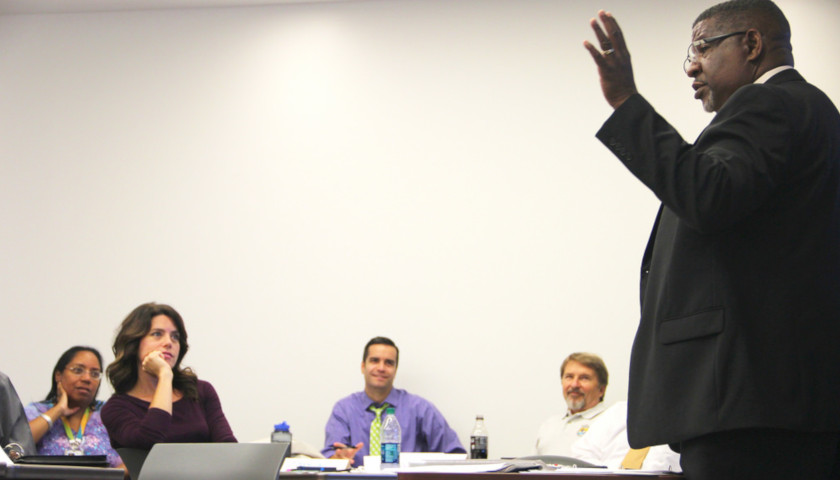Minnesota’s “mainstream media professionals” gathered for a two-day conference this week at Hamline University to discuss the “impact that racial narratives have on individuals, communities, and trust in media—and how they can collaborate to change it.”
The conference, called “Truth and Transformation: Changing Racial Narratives in Media,” was made possible by a $332,000 grant from the Saint Paul and Minnesota Foundations that was awarded to a “community-media partnership.”
According to the conference website, this partnership includes Minnesota Public Radio, Hamline University, ThreeSixty Journalism at the University of St. Thomas, the Minnesota Humanities Center, Pillsbury United Communities, and KMOJ Radio.
The conference ran from March 19 to March 20 and helped “participants deepen their understanding of narratives that are absented from dominant culture discourse and engage with one another through the power of story, setting the foundation for deepened relationships across organizations, generations and geographic locations.”
“On day two, participants will challenge their own assumptions and practice strategies for telling more accurate racial narratives, placing value on the strength of different worldviews. They will hear first-hand accounts of Minnesotans impacted by racial narratives, and work collaboratively to identify systemic barriers and to amplify community solutions to narrative change,” the conference website explains.
The conference kicked off Tuesday morning with a keynote address titled, “Trauma Across Generations: Media’s Impact on Communities of Color.”
“What happens when communities see their stories absented, erased, marginalized, or flattened—generation after generation? Stories, and the media that transmit them, hold immense power. In this address, behavioral consultant Sam Simmons will discuss stories, power, and historical trauma as he sets a foundation for media to effectively engage communities of color,” a conference schedule states.
Another conference session walked participants through an “exercise of guided reportage and reflection” in which attendees experienced “a story from all sides—as sharer, listener, and reporter—while leaning on relationships to tell a more complete and accurate account.”
Day two of the conference allowed participants to “gather in story circles to build skills around deep listening as they eavesdrop on diverse and intergenerational groups of individuals discussing what change can—and should—look like.”
“This format asks participants to listen without bias to how community members understand the problems, stakes, and solutions to inaccurate narratives about race in Minnesota. And it sets the stage for media makers to engage communities as true partners in effecting change while co-creating practical tools for media professionals to use in assessing their work,” the conference website elaborates.
The conference Twitter page posted highlights throughout the two-day event. In one case, it said that “representatives from MPR and MPR News are committing to covering stories differently.”
“Specific examples? Taking out the phrase ‘gang-related’ when it comes to crime,” conference organizers wrote on Twitter.
Representatives from @MPR and @MPRnews are committing to covering stories differently. Specific examples? Taking out the phrase “gang-related” when it comes to crime. #NarrativeChangeMN
— Truth & Transformation: Changing Racial Narratives (@TruthRacial) March 20, 2019
The conference was open to all “media professionals,” but also targeted “educators seeking meaningful strategies to engage students in changing racial narratives in media,” as well as “high school and college journalism students who aspire to tell authentic and inclusive stories and to change racial narratives.”
– – –
Anthony Gockowski is managing editor of Battleground State News, The Ohio Star, and The Minnesota Sun. Follow Anthony on Twitter. Email tips to [email protected].





